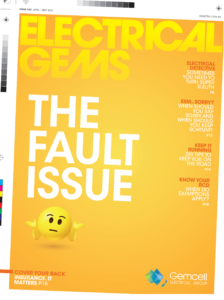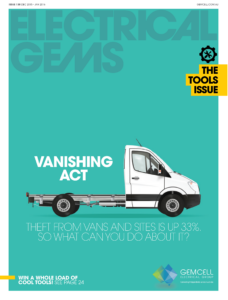6 ways for electrical contractors to reduce their insurance premiums
Insurance is essential. But it can be expensive. By following these 6 tips, you can potentially manage premium costs without compromising cover.
Insurance is essential for any business to operate. From insuring the tools you’re carrying and the vehicles you own to ensuring that you’re covered should you or one of your crew make a mistake in the course of your work, insurance is a vital component of your business make-up. If the unexpected happens, you need a safety net.
But – and here’s the kicker – insurance is ex-pen-sive. Premiums are rising all the time, and where you apportion the blame for that is up to you. The natural disasters we’ve had over recent years certainly don’t help.
Regardless, the fact is insurance premiums are typically increasing – so it’s smart to look at ways to minimise that increase, if not get a cheaper policy in the first place.
Here are 6 ways you can potentially reduce your insurance outgoings while keeping your business safe and secure.
Bundle policies together
There’s a whole host of insurance policies electrical contractors need, but if you’re dealing with multiple insurers, things can get time-consuming and messy.
By exploring ‘business packs’ – business insurance that’s packaged up to include everything you need – you can get some scale of economy. Also consider that if an event like a hailstorm damaged your business premises, utes and some stock – and also put you out of business for a couple of months – you may currently have to deal with four insurers. If you have a business pack policy, you’d only need to deal with one – and you’re less likely to have coverage gaps too.
Risk mitigation
Insurers are providing coverage against a risk happening. If you know your risks, you can put plans in place to mitigate them. It’s well worth spending time to document your policies and processes that relate to different risks happening. For example, when working in a residential property, what checks and processes do your people undertake, document and record? Obviously there’s the standards to meet for all of the work you do, but what do you do as a business owner to reduce that risk even further. How do you keep people safe if they need to do live work? By taking time to record those processes, you can minimise the risk – and that should buy you some brownie points.
Check your limits
Underinsurance – where you don’t have enough insurance to cover the loss you’ve encountered – is a big problem in Australia. But overinsurance can be too. So it’s important to check your limits. You might have coverage for up to $1 million worth of stock, but if you only typically carry about $50,000 worth, then you’re paying out when you don’t need to. Check what you’re actually paying for – because you might not need some of it.
Using subcontractors
Subcontractors are causing a problem in insurance at present, and if you use subbies you need to be aware. There’s a load of information out there about this, but the headlines are that while an injury to an employee would be covered by workers comp, an injury to a subcontractor would eventually be retrieved from your liability insurance. This is another area to watch. If you tell your insurance company you do use subbies because you might want to in the future, then think about the value in paying for something you may not use. Of course, if you do need to use subbies, then you have to make sure your insurance will come to the party if something happens.
Increase your excess
Another way to reduce your premiums is to increase the excess. Weigh up the cost versus the likelihood of something happening. By retaining a $5000 excess for example, you’re telling the insurer you’re not going to bother them with small claims, but if your $80,000 ute is written off, then what’s $5000 between friends? It’s surprising how much of a difference that can make.
Use an insurance broker
Of course, it’s always good to seek professional advice. A good insurance broker will help you identify risks in your business. They’ll help you get the right risk mitigation in place before taking your business to different insurers. Remember though, it’s not all about price. Policy coverage will differ slightly from insurer to insurer, and make sure you research reviews of the insurer’s claims handling too. While it might be good to save a few bucks now, if the claims experience isn’t excellent when you need it, it really is a false economy. If you need a broker, the National Insurance Brokers Association’s Need a Broker online search tool is a good place to start.















































































